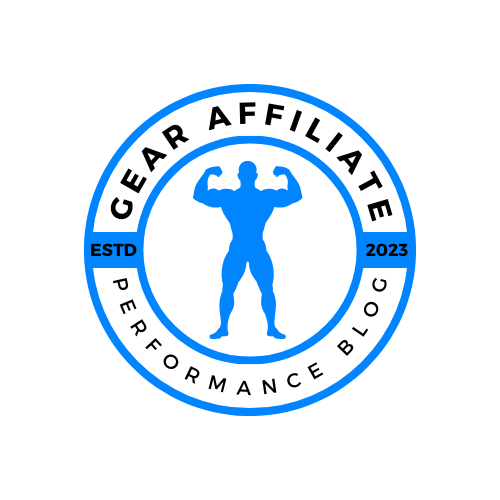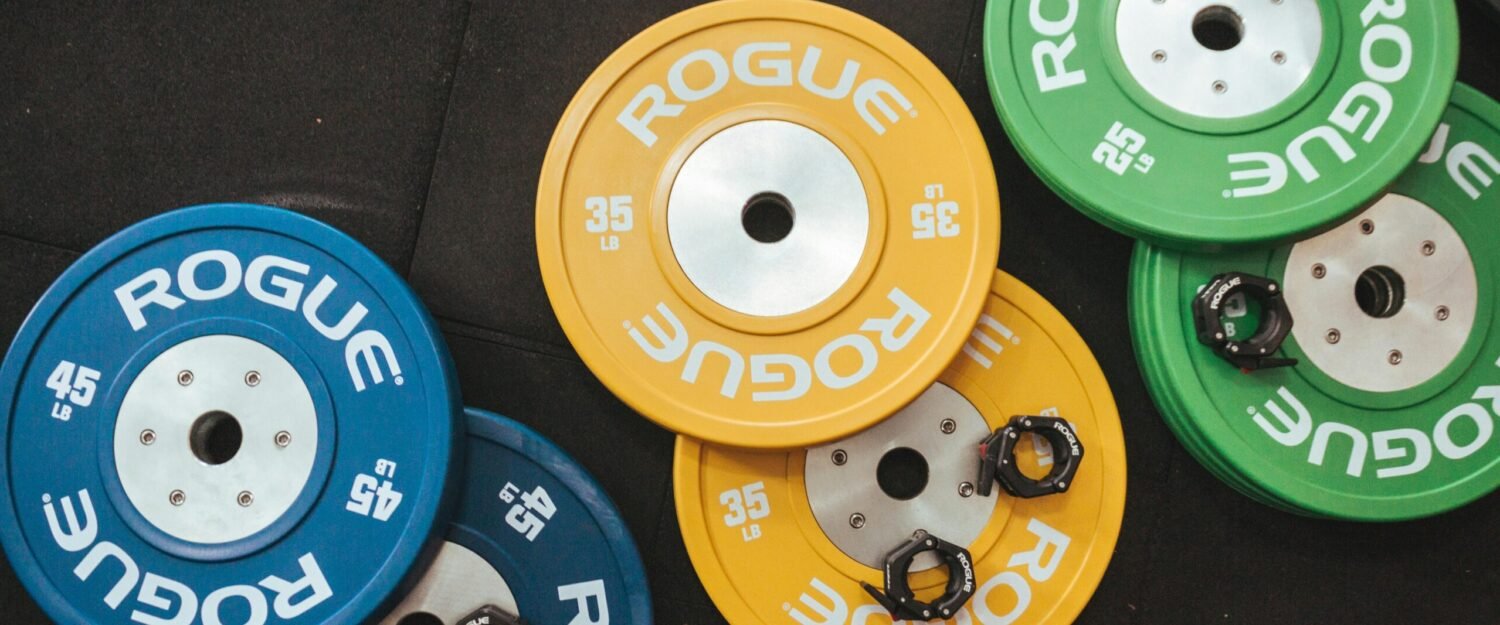- Top 5 supplements for Muscle Recovery and Soreness Relief
- 1. BCAAs (Branched-Chain Amino Acids)
- XTEND Original BCAA Powder
- 2. Glutamine
- Optimum Nutrition L-Glutamine
- 3. Creatine Monohydrate
- Nutricost Creatine Monohydrate Micronized Powder
- 4. Omega-3 Fatty Acids (Fish Oil)
- Nutricost Fish Oil Omega 3 Softgels
- 5. Turmeric Curcumin with BioPerine
- Nutricost Turmeric Curcumin with BioPerine
Top 5 supplements for Muscle Recovery and Soreness Relief
A Guide to Boost Your Workout Recovery
Muscle recovery is the foundation of making progress in any fitness routine. Whether you’re crushing workouts, grinding through practices, or just training consistently, how well your muscles recover directly affects your gains, performance, and injury risk.
In this post, we’ll break down:
- What muscle recovery actually is and why it matters
- The best supplements proven to help speed recovery and reduce soreness
- How to choose the right supplements for your goals and body
- Practical tips for incorporating supplements into your recovery routine
What Is Muscle Recovery — And Why Does It Matter?
Every time you train hard, your muscles go through tiny tears — microscopic damage to the fibers. This isn’t bad; it’s necessary because it triggers your body to repair and strengthen the muscle tissue. This repair process is how you build bigger, stronger muscles over time.
But recovery isn’t just about muscle repair. It’s also about:
- Reducing inflammation that results from training stress
- Clearing out waste products and rebuilding energy stores
- Restoring your nervous system and preparing your body for the next session
Without proper recovery, your muscles stay sore longer, performance drops, and the risk of overtraining injuries increases.
Delayed Onset Muscle Soreness (DOMS) — the tight, achy feeling you get 24-72 hours after tough workouts — is a natural part of this process. But managing soreness efficiently ensures you don’t miss training days or fall into a cycle of fatigue.
The Typical Recovery Timeline
Recovery time depends on:
- Workout intensity — heavier, longer, or more frequent sessions require more recovery
- Your fitness level — beginners may need longer recovery than experienced athletes
- Nutrition, hydration, and sleep quality
Generally, muscle recovery takes anywhere from 48 hours to about a week. During this time, light movement, good hydration, and balanced nutrition speed healing. When you add smart supplementation, you can optimize recovery even more.
Best Supplements to Support Muscle Recovery and Cut Soreness
Supplementation isn’t magic, but it’s a powerful tool when paired with solid training and nutrition. Here are five supplements backed by science to help your muscles recover faster and feel less sore.
1. BCAAs (Branched-Chain Amino Acids)
BCAAs — leucine, isoleucine, and valine — are essential amino acids that your body cannot produce on its own. They play a vital role in stimulating muscle protein synthesis and preventing muscle breakdown following intense exercise.
Research indicates that BCAAs can:
- Reduce muscle soreness and fatigue, helping you feel less drained after training
- Support quicker muscle repair so you can hit your next workout stronger
- Improve workout endurance, allowing you to push harder and longer
Our top pick:
XTEND Original BCAA Powder delivers a solid 7g dose of BCAAs per serving, combined with electrolytes to aid hydration. It’s a go-to choice for athletes seeking effective recovery support with a great-tasting formula.
XTEND Original BCAA Powder
XTEND Sport BCAA Powder Blue Raspberry Ice – Electrolyte Powder for Recovery & Hydration with Amino Acids – 30 Servings
2. Glutamine
Glutamine is the most abundant amino acid found in your muscles and plays a crucial role in both muscle repair and immune system support. After intense workouts, your glutamine levels can drop significantly, which may slow down recovery and leave you more vulnerable to illness.
Supplementing with glutamine can help:
- Accelerate muscle recovery so you bounce back faster
- Reduce post-workout soreness to keep you moving comfortably
- Support immune function during periods of heavy training, when your body needs it most
Our recommendation:
Optimum Nutrition L-Glutamine Powder is unflavored and mixes smoothly into shakes or water. It’s a reliable choice favored by many athletes—including our team—for effective post-workout recovery support.
Optimum Nutrition L-Glutamine
Optimum Nutrition L-Glutamine Muscle Recovery Powder, 1000 Gram, 194 Servings (Pack of 1)
3. Creatine Monohydrate
Creatine is widely known for boosting strength and power, but it’s also a valuable recovery aid. It helps by replenishing ATP—the primary energy source in your muscle cells—allowing you to reduce fatigue and muscle soreness after intense workouts.
Scientific studies highlight creatine’s effectiveness in:
- Accelerating recovery of muscle strength
- Minimizing muscle damage caused by intense training
- Enhancing performance during repeated sprints or heavy lifting sessions
Our top pick:
Nutricost Creatine Monohydrate Micronized Powder delivers pure, high-quality creatine in an unflavored powder that mixes easily into your shakes or drinks. Made in FDA-registered facilities, it’s a trusted option for athletes who want consistent, effective results.
If you want a deep dive into this product, check out our detailed guide: [Understanding Creatine Monohydrate: Facts & Myths].
Nutricost Creatine Monohydrate Micronized Powder
Nutricost Creatine Monohydrate Micronized Powder 500G, 5000mg Per Serv (5g) – 100 Servings, 17.9 Oz
4. Omega-3 Fatty Acids (Fish Oil)
Omega-3s are well-known for their strong anti-inflammatory effects, which can make a real difference in reducing muscle soreness and joint pain after workouts. For athletes and active individuals, this means less discomfort and faster recovery between training sessions.
The most beneficial forms of omega-3s are EPA and DHA, which have been shown to:
- Lower exercise-induced inflammation
- Speed up muscle recovery
- Support joint health and improve mobility
Recommended product:
Nutricost Fish Oil Omega 3 Softgels provide a potent dose of EPA and DHA per serving. They are third-party tested for purity and quality, ensuring you get a clean, reliable supplement. The easy-to-swallow softgels make daily use convenient, perfect for athletes who want steady, effective recovery support.
Nutricost Fish Oil Omega 3 Softgels
Nutricost Fish Oil Omega 3 Softgels with EPA & DHA (1000mg of Fish Oil, 560mg of Omega-3), 240 Softgels, Non-GMO, Gluten Free.
5. Turmeric Curcumin with BioPerine
Curcumin, the active compound in turmeric, is a powerful natural anti-inflammatory and antioxidant. It helps reduce muscle soreness and speeds up recovery when taken consistently, making it a popular choice for athletes and fitness enthusiasts looking to bounce back faster from tough workouts.
One key issue with curcumin supplements is that the body doesn’t absorb it well on its own. That’s why many formulas include BioPerine, a black pepper extract that significantly boosts curcumin’s absorption—sometimes by as much as 20 times—making the supplement much more effective.
Recommended product:
Nutricost Turmeric Curcumin with BioPerine offers a strong dose of curcuminoids per capsule combined with black pepper extract. It’s made in GMP-certified facilities to ensure quality and consistency, making it a reliable option to support recovery and reduce inflammation naturally.
Nutricost Turmeric Curcumin with BioPerine
Nutricost Turmeric Curcumin with BioPerine and 95% Curcuminoids, 2300mg, 120 Capsules, Veggie Capsules, 767mg Per Cap, 40 Servings, Gluten Free, Non-GMO
How to Choose the Right Supplements for You
Not every supplement is necessary or right for every athlete. Here’s how to find what fits your needs:
- Assess your training intensity: Heavy lifters or endurance athletes may benefit more from creatine and BCAAs, while casual exercisers might start with glutamine or fish oil.
- Consider dietary restrictions: Vegetarians, vegans, or people with allergies should check ingredient sources and choose accordingly.
- Health conditions: Always consult your doctor if you have medical concerns or are on medication before starting supplements.
- Read labels carefully: Look for transparency on ingredient amounts, third-party testing, and no hidden fillers or additives.
- Start with trusted brands: Quality matters for absorption and safety — reputable companies invest in research-backed formulas and testing.
Incorporating Supplements Into Your Recovery Routine Like a Pro
Supplements work best when used strategically within an overall recovery plan:
- Timing matters:
- Creatine can be taken pre- or post-workout, depending on your goals. Post-workout is usually best for recovery.
- BCAAs and glutamine are effective when consumed during or immediately after training.
- Fish oil and curcumin should be taken daily for sustained anti-inflammatory benefits.
- Stack wisely: Combining creatine with protein or BCAAs can enhance muscle repair. Avoid overloading with too many supplements at once.
- Support supplements with real food:
- Prioritize nutrient-dense meals rich in lean proteins, complex carbs, and healthy fats.
- Hydrate consistently and include electrolytes if you sweat heavily.
- Prioritize sleep and rest: No supplement replaces quality sleep and scheduled rest days. Recovery is holistic.
Final Thoughts
Muscle recovery is non-negotiable for anyone serious about training smarter, staying injury-free, and hitting new personal bests. Using the right supplements alongside smart nutrition, hydration, and rest can dramatically improve how fast you bounce back.
If you’re ready to up your recovery game, consider starting with the supplements we’ve outlined here — all trusted, proven, and athlete-approved.
Got recovery tips or supplement favorites? Drop a comment below and share your experience with the community!
Built for lifters, athletes, and anyone serious about what they put in their body — this guide is written by real coaches who prioritize performance over hype.
If you found this post to be helpful, then you may be interested in the rest of our blog page here.
Discover more from GearAffiliate
Subscribe to get the latest posts sent to your email.








I’d have to examine with you here. Which is not one thing I usually do! I take pleasure in reading a post that may make folks think. Additionally, thanks for permitting me to comment!